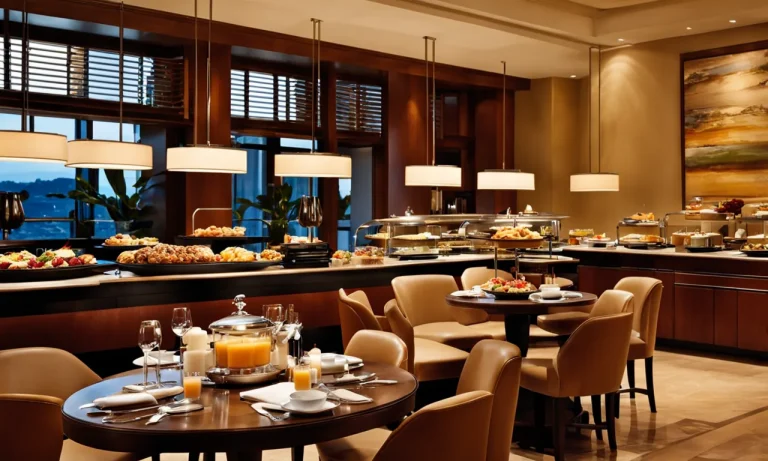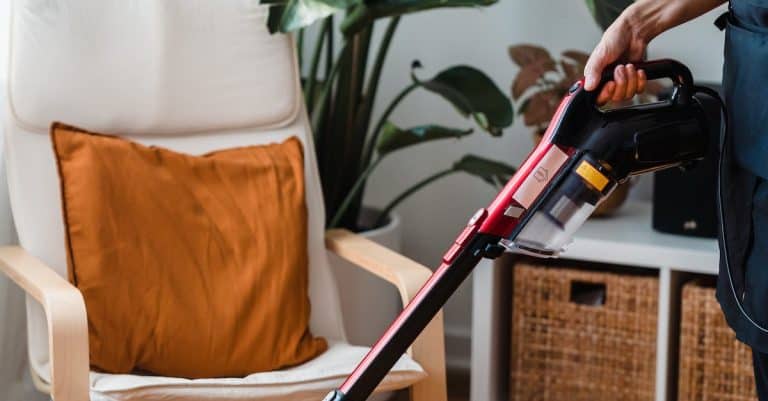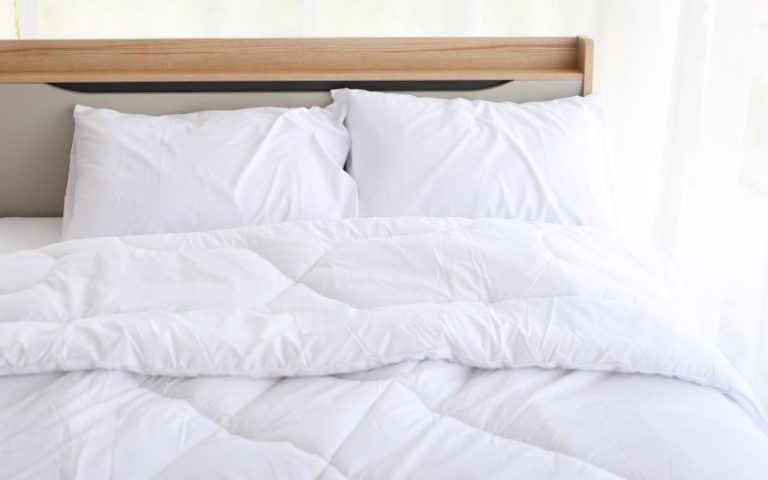One of the hospitality services you’ll use the most when staying at a hotel is housekeeping. These hard-working staff members keep your room cleaned and stocked during your stay. Tipping housekeepers is a way to show appreciation, but how much should you give?
The standard tip for hotel housekeeping is typically between $2 and $5 per night of your stay. This amount can vary depending on the hotel and the level of service provided.
This guide will cover tips on providing gratuities for hotel housekeepers, from when and how much to tip to thoughtful gestures beyond money.
When to Leave a Housekeeper Tip
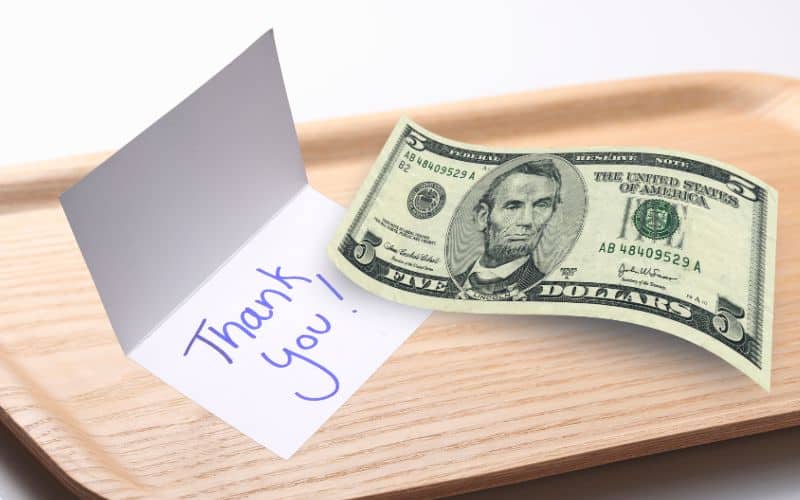
Knowing when to leave a tip for hotel housekeeping can sometimes be confusing. Should you tip daily or at the end of your stay? Is there a preferred time of day to leave a tip?
Let’s explore these questions to ensure you show your appreciation to the hardworking housekeeping staff.
Daily vs End of Stay
While there is no hard and fast rule, tipping hotel housekeeping daily is considered a polite gesture. Housekeepers work tirelessly to ensure your room is clean and comfortable. Leaving a small tip each day shows your appreciation for their efforts and allows them to receive the gratuity in a timely manner.
On the other hand, some guests prefer to leave a larger tip at the end of their stay. This can be a personal preference or if you feel the housekeeping staff went above and beyond during your stay.
Keep in mind that housekeepers may change shifts or have different schedules, so leaving a daily tip can ensure everyone receives their fair share.
Mornings Are Best
If you decide to leave a tip for housekeeping, it is best to do so in the morning before you leave your room for the day. This allows the housekeepers to receive their tips earlier in the day and helps them plan their workload accordingly.
Leaving the tip in a visible and secure location, such as an envelope or a designated tip tray, is a considerate way to ensure it reaches the intended recipient.
Remember, housekeepers often have a busy schedule and may not have time to clean every room simultaneously. Leaving your tip in the morning can help them avoid confusion and ensure they receive their well-deserved gratuity.
It is important to note that tipping hotel housekeeping is not mandatory, but it is a kind gesture that can make a difference in their day. Your appreciation and generosity can go a long way in showing gratitude for their hard work and dedication.
How Much to Tip
When tipping hotel housekeeping staff, it’s important to show appreciation for their hard work and the service they provide. Here are some guidelines on how much to tip:
$2-5 USD Per Night
The standard tip for hotel housekeeping is typically between $2 and $5 per night of your stay. This amount can vary depending on the hotel and the level of service provided.
If you’re staying in a budget hotel or a smaller establishment, a $2 tip per night is usually sufficient. However, if you’re staying in a higher-end hotel or a luxury resort, you should pay $5 per night to show your appreciation for the quality of service.
- For a standard hotel room, leave $2-3 per night. For a suite or extra services, tip $5 or more.
- Leave cash daily instead of at the end of your stay so the tip is clear for that day’s service.
- Make sure to leave the tip before housekeeping services your room, typically in the morning before you leave.
- Leave the cash in an obvious spot, like on a pillow, bathroom counter, desk, or nightstand.
- Label the “For Housekeeping” tip to avoid being mistaken for forgotten cash.
- If you don’t have small bills, request change at the front desk to have cash for tipping.
- An additional tip is appreciated if you have special requests or extra needs.
Tipping daily in cash allows the housekeepers to receive their tips immediately for that day’s work. Leaving $2-5 in an obvious spot labeled for housekeeping is considered good etiquette.
More for Luxury Hotels and Long Stays
For luxury hotels or resorts, where the level of service tends to be higher, it is customary to tip more.
You may consider tipping between $5 and $10 per night in such establishments. Similarly, suppose you’re staying for an extended period of time, such as a week or more. In that case, it’s a good idea to increase your tip amount as a gesture of gratitude for the housekeeping staff’s continuous efforts to keep your room clean and comfortable throughout your stay.
For extra services like unpacking, garment care, or special amenities, tip accordingly – $10+.
Extra for Special Requests
Leaving an extra tip is always appreciated if you have any special requests or require additional services during your stay, such as extra towels or toiletries. This extra tip can range from a few dollars to more, depending on the complexity of the request and the level of service provided by the housekeeping staff.
Remember, tipping is a personal choice, and it’s important to consider your own budget and the level of service you have received when deciding on the appropriate tip amount. Ultimately, it’s about showing gratitude and appreciation for the hard work of the hotel housekeeping staff who ensure your stay is comfortable and enjoyable.
Also Read: Can You Stay In The Room While Housekeeping? A Guide To Hotel Policies
Tipping Etiquette and Options
When tipping hotel housekeeping staff, following proper etiquette to show appreciation for their hard work is important. Here are some options and guidelines to consider:
Cash Tips
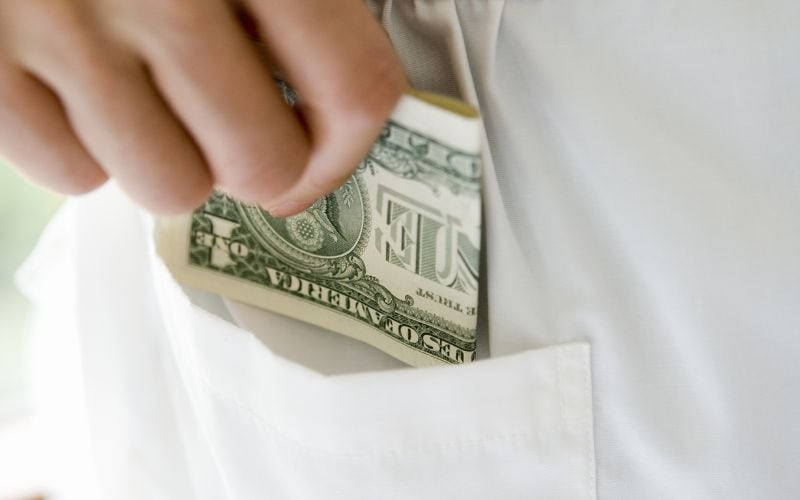
Tipping with cash is the most common and preferred method. It lets you hand over the tip and express your gratitude directly. Additionally, cash tips are often more convenient for housekeeping staff as they can use the money immediately.
The amount to tip varies depending on the hotel and the level of service provided, but a general guideline is to leave $2 to $5 per day. You might consider leaving a higher tip if you stay in a luxury hotel or suite.
Tip Envelopes
Some hotels provide tip envelopes in the room for guests to leave their gratuities. These envelopes are often labeled “Housekeeping” or “Thank You.”
Using an envelope ensures that your tip reaches the intended recipient and prevents it from being mistaken for trash. If you don’t find envelopes in your room, you can always ask the front desk for some. Remember to seal the envelope and write a note of appreciation if you’d like.
Tip on Bill If No Cash
If you don’t have cash or prefer not to use it, you can add the tip to your hotel bill. Simply write the amount you wish to tip on the bill and indicate it’s for housekeeping.
Be sure to check with the hotel beforehand to ensure they accept tips added to the bill. Some hotels do not allow this, so it’s always good to double-check.
Also Red: Can You Tip Hotel Staff Without Cash? A Guide For Cashless Tipping
Additional Ways to Show Appreciation
While tipping hotel housekeeping staff is a common way to show gratitude for their hard work and dedication, there are also additional ways to express appreciation. These gestures can go a long way in making their day a little brighter and showing them that their efforts are noticed.
Thank You Note
A simple yet heartfelt thank you note can benefit the hotel housekeeping staff. Taking a few minutes to write a thoughtful message expressing your gratitude can brighten their day and make them feel valued.
Leave the note on the bed or the desk with a smiley face 😊 to let them know how much you appreciate their efforts.
Here is a sample thank you note you can send to show your appreciation for a generous tip:
Dear [Customer’s Name],
I wanted to send you a quick note to express my sincere gratitude for the generous tip you left me after your visit to [Restaurant Name] last night. I truly appreciate your kindness – it absolutely made my day! As someone who relies heavily on tips as part of my income, gestures like yours really help to brighten my outlook during long shifts.
I strive to provide excellent service to all of my customers, but it’s always nice when that effort is recognized. Your generosity re-energizes me and motivates me to continue giving my all. I hope you enjoyed your meal and that I will have the pleasure of serving you again next time you dine with us. Thank you again for making my night with your thoughtfulness. It means more than you know.
Sincerely, [Your Name]
Complete Guest Survey
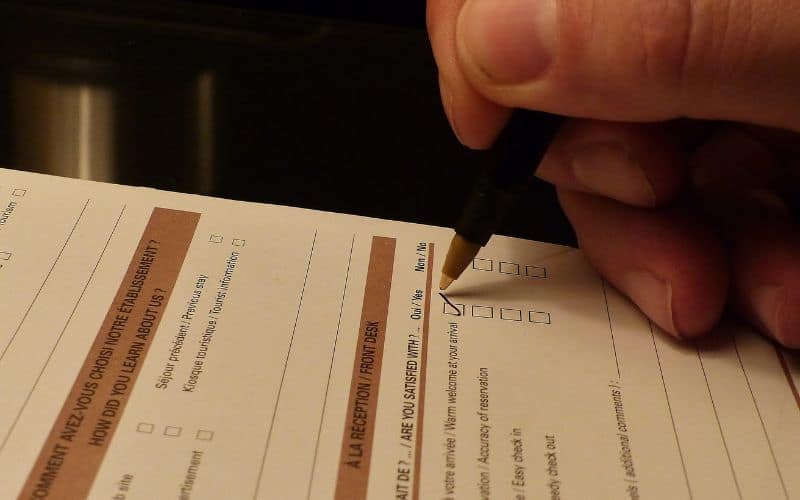
Many hotels provide guest surveys to gather feedback about your stay. Take the time to fill out these surveys and mention the exceptional service provided by the housekeeping staff.
Your positive feedback can contribute to their recognition and may even lead to rewards or recognition from the hotel management. Remember, your feedback matters!
Bottled Water or Snack
Consider leaving a small token of appreciation for the housekeeping staff, such as a bottle of water or a snack, along with a note expressing your thanks.
This gesture shows that you value their hard work and are grateful for their efforts to make your stay comfortable. It’s a small act of kindness that can make a big impact.
Remember, these additional ways to show appreciation are not mandatory, but they can make a difference in the lives of the hardworking individuals who ensure your hotel room is clean and comfortable. By going the extra mile to express your gratitude, you can brighten their day and make their job a little more rewarding.
Policies Around Housekeeper Tipping
Typically Not Included in Bill
When staying at a hotel, it’s important to remember that tipping the housekeeping staff is typically not included in your bill. While you may see a service charge added to your total, this is often a separate fee that does not directly benefit the housekeeping staff.
It’s important to remember this and budget accordingly to show your appreciation for their hard work.
Always Optional
Tipping housekeeping staff is always optional, but showing gratitude for their services is common.
By leaving a tip, you acknowledge the effort and care they put into ensuring your room is clean and comfortable during your stay. Even a small amount can go a long way in making a difference in their day.
Confirm at Check-in
Before arriving at your hotel, confirming their tipping policy regarding housekeeping is a good idea. Some hotels have specific guidelines or recommendations for tipping, while others may leave it entirely up to the guest.
By asking about this policy at check-in, you can ensure you follow the hotel’s guidelines and show your appreciation appropriately.
Remember, tipping is a personal choice and should be based on the level of service you received and your own discretion. It’s always a nice gesture to leave a tip for the housekeeping staff, as they work hard to make your stay as comfortable as possible
So, the next time you check out of a hotel, consider leaving a little extra for the unsung heroes who keep your room clean and tidy!
Conclusion
Showing gratitude through tips, kind words, and positive reviews is an important part of being a thoughtful hotel guest. While not required, tipping and thanking housekeepers recognizes their daily hard work to make your stay comfortable.
Follow these housekeeping gratuity tips to help these underappreciated staff feel recognized for providing excellent service.

